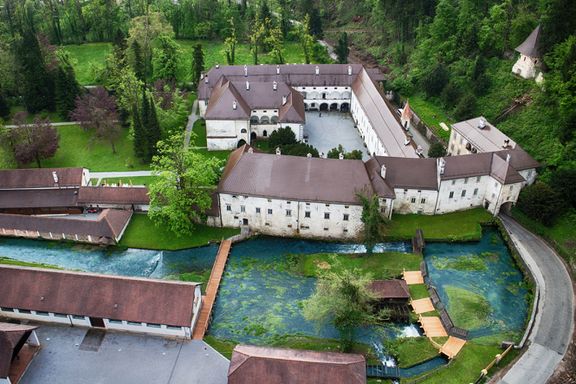The Carthusian monastery of Bistra was founded in the mid 13th century by Carinthian duke Bernard Spanheim and completed by his son Ulrik in 1260. The monastery was subsequently supported by the counts of Celje and reached its peak in 14th century. However, further development was hindered by Turkish invasions, fires, earthquakes and the Protestant Reformation. The final blow to the institution was struck by enlightened absolutist Joseph II, who abolished the monastery in 1782. After the French occupation the building was used temporarily by the district authorities, but in 1826 it was purchased by merchant and factory owner Franc Galle who reconstructed it, removing the last remnants of the monastery and turning it into a castle. The estate comprising more than 1200 ha of land, four wood saws, a mill and a hunting hut remained in the possession of the Galle family until 1945 when it was declared the national possession under the management of the Ministry for Forestry. In 1947 some rooms were assigned to the cabinet collection of the Forestry Institute of Ljubljana.
In 1951 the castle, park and the old Venetian sawmill as well as a small section of the forest were taken over by the Technical Museum of Slovenia, which has continued to manage the site until the present day.
See also



